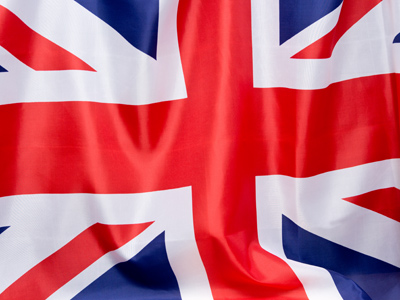
It took eleven years for the UK to negotiate entry into the EEC.
British Membership of the European Union
For years after the referendum back in 2016, Brexit dominated the news. The UK voted to leave the European Union by a majority of 51.9% to 48.1% yet little progress was made for the next three years.
1.
In which year did Britain begin talks aimed at joining the EEC?
1961
1971
1981
1991
In March 1957, Belgium, France, Italy, Luxembourg, the Netherlands and West Germany signed the Treaty of Rome and created the European Economic Community (EEC). Britain first began to negotiate membership in July 1961
2.
Britain’s efforts to join the EEC were thwarted when the President of France vetoed our application twice. What was the President’s name?
Jacques Chirac
Paul Cézanne
Charles de Gaulle
Thierry Henry
De Gaulle said, "a number of aspects of Britain's economy, from working practices to agriculture… made Britain incompatible with Europe"
3.
Britain’s third attempt at joining the EEC was successful when the Treaty of Accession was signed by the Conservative Prime Minister in 1972. Which Prime Minister was this?
Tony Blair
Edward Heath
Margaret Thatcher
David Cameron
After de Gaulle left office in 1969, the UK made a third and successful application for membership of the EEC. Parliament approved this in 1972 and the UK joined on January 1st 1973
4.
in 1974, one of our major parties campaigned to renegotiate Britain's terms of membership of the EEC and then hold a referendum. Which party was this?
UKIP
The Conservative Party
The Liberal Party
The Labour Party
The leaders of all of the major political parties, the mainstream press, and the public, supported continuing membership of the EEC. However, the Labour Party itself was divided – hence the call for a referendum
5.
The 1975 referendum asked voters, "Do you think the UK should stay in the European Community?” Every administrative county and region in the UK returned majority "Yes" votes, apart from two. Can you name them?
Devon and Cornwall
Pembrokeshire and Carmarthenshire
Lincolnshire and Norfolk
The Shetland Islands and the Outer Hebrides
Ironically, both regions voted Remain in the 2016 referendum
6.
In the 1975 referendum, 65% of the electorate turned out to vote and the majority voted to remain. What percentage of voters opted to leave?
12.8%
27.8%
32.8%
47.8%
Remain won the referendum with a bigger majority than has been received by any Government in any general election, before or since
7.
In 1979, the United Kingdom opted out of the precursor to the European currency, EMS. What did EMS stand for?
Easy Money Service
European Monetary System
Economic Management Structure
Enterprise Monitoring Shortcuts
The European Monetary System linked the currencies of EEC members. The Deutsche Mark became the anchor of the EMS and other currencies were forced to follow its lead. Many thought that, had the UK joined at this stage, the Pound would have been the EMS’ anchor
8.
In the 1983 General Election, the opposition Labour Party campaigned on a policy to do with our place in the EEC. What was this policy?
To hold a second referendum on EEC membership
To join the Euro and replace the Pound
To withdraw from the EEC without a referendum
To adopt the EU flag as a replacement for the Union Jack
The Labour Party was led by Michael Foot, and their policies moved further to the left than usual. Margaret Thatcher’s Conservative Party won the election with the largest government majority since 1945
9.
In 1985, the United Kingdom ratified the Single European Act. What was the main aim of the act?
A single European currency
A United States of Europe
A single European market
Free cheese and wine for Europeans
As well as a single market, the treaty also aimed to promote political cooperation between states. Europe was moving ever closer together
10.
In October 1990, the UK joined the ERM. What was the ERM?
European Resource Management
European Exchange Rate Mechanism
European Rubber Manufacturing
European Relationship Maintenance
The UK was late to join and quick to leave the ERM. The value of the Pound dropped, and John Major’s Conservative government pulled us out of the ERM in September 1992. Euroscepticism in the UK was on the rise
**Unlimited Quizzes Await You! 🚀**
Hey there, quiz champ! 🌟 You've already tackled today's free questions.
Ready for more?
Ready for more?
🔓 Unlock UNLIMITED Quizzes and challenge yourself every day. But that's
not all...
not all...
🔥 As a Subscriber you can join our thrilling "Daily Streak" against other
quizzers. Try to win a coveted spot on our Hall of Fame Page.
quizzers. Try to win a coveted spot on our Hall of Fame Page.
Don't miss out! Join us now and keep the fun rolling. 🎉
**Unlimited Quizzes Await You! 🚀**
Hey there, quiz champ! 🌟 You've already tackled today's free questions. Ready for more?
🔓 Unlock UNLIMITED Quizzes and challenge yourself every day. But that's not all...
🔥 As a Subscriber you can join our thrilling "Daily Streak" against other quizzers. Try to win a coveted spot on our Hall of Fame Page.
Don't miss out! Join us now and keep the fun rolling. 🎉







